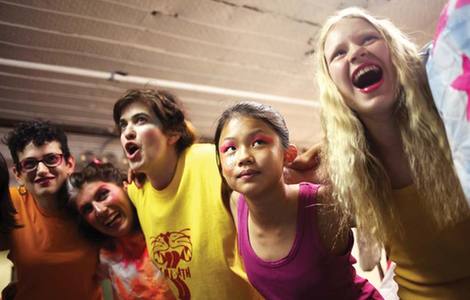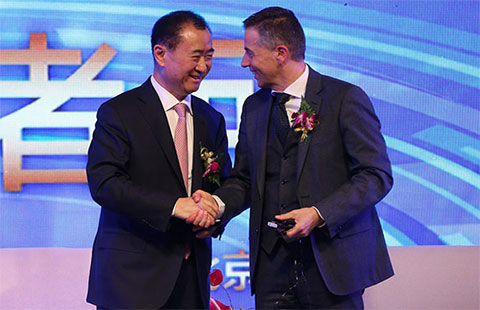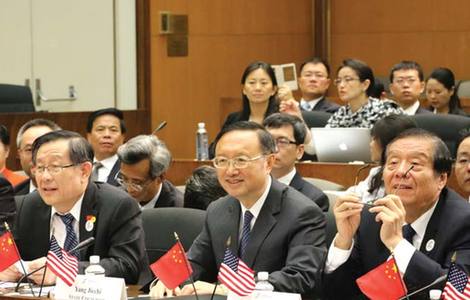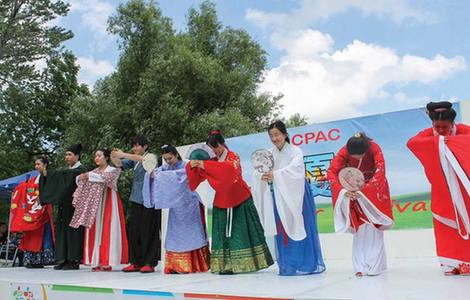Love for Mandarin takes lawyer on life journey
Updated: 2015-06-26 23:49
By CLARISSA SHAH(China Daily USA)
|
|||||||||
Many are surprised by the mist that veils my eyes as I recall the general details of the time I spent at Peking University as an exchange student in 2009. As I have found, a lawyer who studies Chinese is considered a champion of practicality and foresight, not of sentimentality.
Those who know the details of my 2009 trip understand that the months I spent in China were truly transformative; in 2009, I decided that I would be a forever student of Mandarin.
When I arrived at Colgate University in 2006, I was thrilled to register for a Chinese course. I lived and breathed Chinese studies. My husband, whom I met at Colgate, teases that he still has nightmares of me practicing tones.
I carried my handmade Chinese flashcards with me everywhere, from lunch to football games. I even secretly stashed a few in my purse before going to social events. There was no question that I would spend a semester in China.
My flashcards, however, did not prepare me for the amount of attention I would receive in China. I quickly began to realize why I received it; I was the only African-American in my study group, and while visiting 10 Chinese cities, I encountered only six people who looked like me. Of those six, one happened to be my mother, visiting me during spring break.
On my mother's first day in Beijing, I decided to surprise her earlier than our planned meeting time. When I called her hotel to inquire of her whereabouts, I was told that she was at Gugong, the Forbidden City. Although Gugong sees close to 80,000 people daily, I was confident that I could find my mother. I entered Gugong and stood on the steps of the Hall of Supreme Harmony, looking for her.
The crowd was dense, of course, but within 10 minutes I found her, Mom's dark skin immediately capturing my attention. I had known that even within such a large crowd, I would be able to spot the proverbial needle in the haystack.
Throughout my time in China, I was asked to pose in several photos and about my coarse hair. I was even used as a place marker a few times. "There is an open seat next to the Feizhouren (African)!" The turning point in my trip came when I decided for the first time to engage a person — a jidan guanbing vendor — in a conversation about my roots. After handing me the bing, he asked me how long it took me to fl y to Beijing from Africa.
After explaining to him that I was not from Africa but was instead born and raised in America, as were my parents and grandparents, I could tell that he was puzzled. On the streets of Beijing and with only a few years of Chinese under my belt, I engaged in one of the most genuine conversations I have ever had about African- American history.
Soon, I began to engage everyone who assumed I was a Feizhouren in similar conversations. Cab drivers, store clerks, museum guides — no person was spared. The personal narratives I received in return accentuated the notion that China is composed of several unique subcultures. I became attuned to local dialects, diverse religious practices, varied traditions and stories of difficult cross-regional family migrations.
These dialogues underscored the importance of conversation as a means to understanding. In a world where we must ask ourselves, "What am I doing to mend cultural gaps?" Chinese became my vessel for creating cross-cultural dialogue that our world so desperately needs; it became my small way of contributing to change. For this reason, I decided to become a lifelong student of Mandarin.
I decided that, uncompromisingly, I would carry Mandarin throughout each facet of my life. In 2013, I earned a joint juris doctorate and master's degree in East Asian studies: Chinese language and history.
As a lawyer at Emerson Electric Co, I am constantly exposed to Mandarin, working with peers in China and having opportunities to travel to Asia, and am lucky to have a boss that encourages my linguistic passion.
My family, too, has grown accustomed to attending Chinese cultural events and baoing jiaozi during the lunar New Year (my dad's favorite Chinese tradition).
So, when the mist veils my eyes as I describe to you my time in China as an exchange student, know that I am seeing the faces of those who allowed me to engage in genuine dialogue and also hearing their stories. I am remembering how these people inspired my bond with Mandarin and infused my life with passion. I hope they know that I am forever grateful.
The author is a Chinese linguist and the supply chain staff counsel at Emerson Electric Co.
Most Viewed
Editor's Picks

|

|

|

|

|

|
Today's Top News
China opposes US defense bill
No rest until sweeping victory against drugs, President Xi says
More people around world like China, survey finds
Victims of Charleston massacre mourned
US police fatally shoot unarmed black man in domestic dispute
Pundits cheer China-US talks
US Supreme Court upholds key Obamacare insurance subsidies
Productive talks praised
US Weekly

|

|















